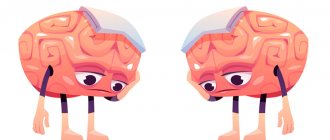Frequent abdominal pain combined with other symptoms may indicate irritable bowel disease. This functional disorder of the gastrointestinal tract (GIT) most often manifests itself after the age of 20 years and mainly worries women1. The problem may be accompanied by bowel dysfunction (diarrhea or constipation). From this article you will learn:
- What are the characteristics of irritable bowel symptoms such as pain and flatulence?
- What could be the cause of irritable bowel?
- How to help the body if it is often bothered by irritable bowel symptoms?
Causes of flatulence
Flatulence is a fairly common phenomenon that can occur even in healthy people. For example, when consuming certain foods or having a tendency to overeat. Remember, there are situations when a long period of time passes between meals. And when you finally have the opportunity to eat, you want to eat more so that the long-awaited feeling of fullness comes sooner. It is at such moments that you may encounter a feeling of fullness in the abdomen caused by increased gas formation.
If discomfort begins to bother you regularly and it is not possible to associate it with specific situations, then a symptom such as flatulence, or bloating, may indicate a disruption in the functioning of the intestines. In this case, you should listen more carefully to your body.
Flatulence can be one of the symptoms of a problem such as Irritable Bowel Syndrome (IBS). This name combines a complex of symptoms with which the body tries to attract our attention: abdominal pain, stool disorders (constipation, diarrhea or their alternation), bloating and increased gas formation1.
Irritable intestines are a consequence of a busy lifestyle with frequent stress, fatigue and emotional overload, as well as dietary errors and snacks on the go. Another reason may be previous intestinal infections when the intestines have not fully recovered3.
Thus, the cause of bloating (flatulence) in IBS is a malfunction of the intestines. With IBS, flatulence, or bloating, often occurs along with constipation. This is due to the fact that food is “locked” in the intestines, which provokes fermentation processes and, as a result, the release of gases2.
So, flatulence can occur as an independent symptom after taking certain foods or meals. However, if flatulence occurs regularly and is accompanied by abdominal pain or bowel irregularities, this may indicate that the intestines are irritated.
Gas formation in the intestines
The human gastrointestinal tract contains approximately 200 ml of gases. Gradually, they accumulate and are eliminated from the body through the intestine (this process is called flatulence or farting). A certain portion of complex carbohydrates remains undigested and begins to decompose and rot. As a result, flatulence develops, which can be accompanied by a very unpleasant odor. Sometimes other manifestations appear that significantly complicate a person’s life.
How to treat flatulence in adults?
Treatment of flatulence is determined depending on the cause of this symptom.
If increased gas formation is the body’s response to foods, then it is important to reconsider your diet and diet.
One of the most important stages in the treatment of flatulence is diet6. In order to eliminate excess gas formation, it is worth thinking about useful habits:
- for some time, remove legumes, sweet and flour products, carbonated drinks, raw vegetables and fruits from the diet;
- give preference to fermented milk products, crumbly porridges, boiled meat, wholemeal bread;
- adhere to fractional meals (eating in small portions every 2-3 hours);
- maintain a drinking regime (drink at least 1.5 liters of clean water per day);
- don't overeat at night3.
If the appearance of bloating (flatulence) is associated with Irritable Bowel Syndrome, then treatment of gas formation requires an integrated approach. Just following a diet to normalize work will not be enough, since the problem has been developing for a long time. Quickly accustoming yourself to a new diet is not easy. A remedy for restoring intestinal function will be a good helper.
Antifoaming drugs, which are usually used to treat flatulence, may also not be enough. Such drugs help relieve the symptom here and now, but they will not be able to restore functional impairment. In order for the problem of flatulence to be resolved naturally, time and a suitable drug are needed to train the intestines to work correctly4.
How to quickly get rid of gas and bloating
To avoid gas and bloating, it is important to make some changes in your lifestyle.
- Avoid gas-causing foods such as legumes, cabbage, and cauliflower.
- Avoid dairy products if you are lactose and gluten intolerant.
- Products labeled sugar-free also often contain bloating ingredients.
- Engage in physical activity and stop smoking.
If you often suffer from gas, then you need a quicker solution to the problem. Fortunately, folk remedies will come to your aid that will help you quickly get rid of gas.
Find a quiet corner to say goodbye to this problem.
Flatulence Remedy for Irritable Bowel Syndrome
The drug Duspatalin® 135 mg was created specifically for the treatment of irritable bowels. Thanks to a special mechanism of action, the drug helps not only relieve pain, but also restore its function5. This allows you to control symptoms such as pain and spasms, bloating, gas formation and stool disorders: diarrhea or constipation when taking a course of 28 days7.
You can read more about Duspatalin® 135 mg tablets here5.
Co-author of articles, editor - Shimbaretsky Georgy Alekseevich.
Associated symptoms
Most known gastrointestinal diseases are accompanied by excessive gas formation. Most people are embarrassed by the problem and put off visiting the doctor every time, which is extremely unwise. However, it may also be accompanied by other symptoms:
- cramping pain in the epigastric area;
- bloating;
- belching, rumbling;
- nausea;
- bowel dysfunction in the form of constipation or diarrhea.
A sudden release of gases from the rectum may be accompanied by a loud sound and a specific smell. The clinical picture is sometimes supplemented by rapid heartbeat and arrhythmia. Such symptoms are caused by pinching of the so-called vagus nerve by intestinal loops. Patients may be plagued by constant insomnia due to intoxication of the body. Due to incomplete absorption of nutrients, some patients complain of weakness and a feeling of weakness. All this leaves an imprint on a person’s psycho-emotional mood.
Drug therapy
Drug therapy consists of pathogenetic and etiotropic treatment. In the first case, tablets are used that directly combat excessive gas formation. The details of the drugs used are presented in the table below.
| Drug group | Mechanism of action | Examples |
| Sorbents | Binds and quickly removes toxic components. Not recommended for long-term use due to the risk of side effects. | Enterosgel, Phosphalugel |
| Enzymatic medicines | Improves the functioning of the gastrointestinal tract in a comprehensive manner. | Mezim, Pancreatin |
| Defoamers | They destroy foam, in the form of which gases continuously accumulate in the intestines, and improve its absorption ability. They have a pronounced carminative effect. | Dimethicone, Simethicone |
The goal of etiotropic therapy is to eliminate the immediate causes of excessive gas formation. In case of dynamic flatulence, Cerucal is used. This drug enhances intestinal motility. To normalize its functioning and reduce dysbiosis, probiotics (Enterol, Linex) are used. They contain live bacteria.
If flatulence is caused by mechanical causes (for example, neoplasms of various origins in the intestines or constipation), its treatment will be determined by the specific disease. Prolonged constipation is eliminated with fast-acting laxatives. For tumors, surgery is recommended.
Principles of treatment
Treatment for excessive gas formation with an unpleasant odor is complex. Usually it includes a combination of etiotropic and pathogenetic therapy. At the same time, the patient must understand that if a disease is the cause of the pathology, treatment should begin with the root cause. Symptomatic therapy involves eliminating the disorders associated with increased gas formation. For this, painkillers and antispasmodics (No-shpa, Drotaverine) are prescribed.
When the cause of flatulence is aerophagia, measures are taken to stop swallowing large quantities of air during meals.
An important component of complex treatment is a strict diet.
To relieve discomfort, you must avoid fatty foods. This will allow nutrients to be absorbed much faster and gases to leave the intestines. As a supplement, recipes from traditional healers can be used.
Help from traditional medicine
Traditional recipes are often used for excessive gas formation in the intestines. Your doctor should tell you how to get rid of this problem. Most often, various decoctions and infusions based on medicinal herbs are used. The most popular and at the same time cheapest remedy is Fennel. The plant is characterized by a mild carminative effect.
Therefore, decoctions based on it can be given to children and women during pregnancy. An infusion of caraway seeds and anise has a similar effect. To prepare it, you will need to pour a teaspoon of the ingredients into a glass of boiling water and leave for no more than 15 minutes. Take the medicine one third of a glass before meals.
Peppermint tea is beneficial for excess flatulence.
To prepare it, you can take different varieties of plants: pepper, spike or cat. Pour a glass of boiling water over a teaspoon of pre-crushed leaves and simmer over low heat for 5 minutes. The finished product is consumed as regular tea.
To combat constipation, you can make a mixture of senna herb and dried fruits. 400 g of dried apricots and prunes should be poured with warm water and left overnight. In the morning, pass the mixture through a meat grinder, add 200 g of honey and a tablespoon of senna herb. Take 2 teaspoons of the mixture before bed.
Diagnostic methods
A gastroenterologist studies excess gas formation in the intestines, causes and treats the problem. First of all, the specialist must exclude health-threatening pathologies. For this purpose, the patient is prescribed a comprehensive examination of the body.
Usually they start with an x-ray of the peritoneum.
During the procedure, the height of the diaphragm and the volume of gases are assessed. The technology of rapid introduction of argon into the intestines is used. The following diagnostic measures are also used:
- stool culture to identify dysbacteriosis;
- FGDS with simultaneous biopsy;
- colonoscopy;
- coprogram.
To exclude oncological processes in the intestines, an endoscopic examination is prescribed. If lactase deficiency is suspected, special lactose tolerance tests are used. Additionally, the doctor studies the patient’s diet.









